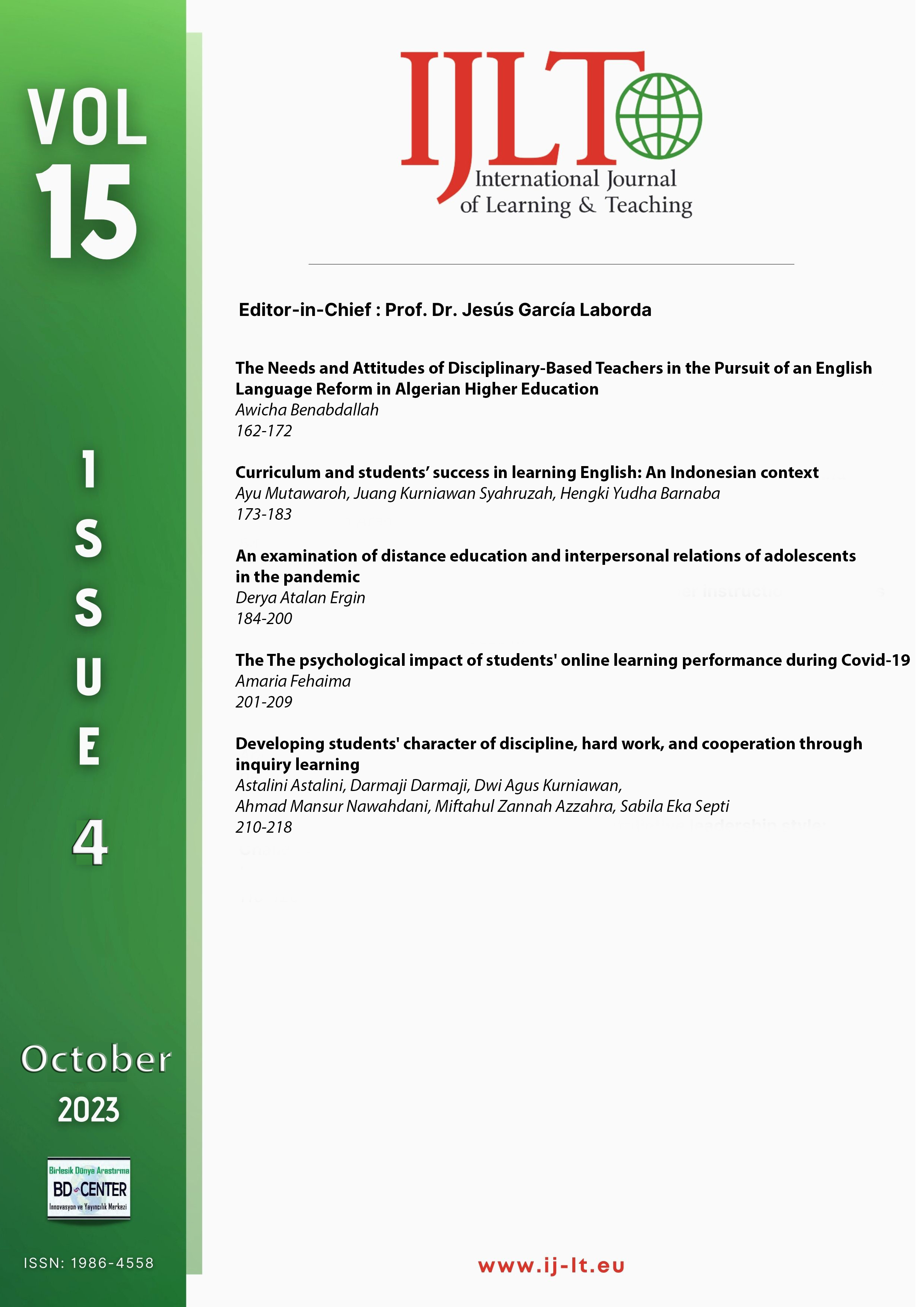The Needs and Attitudes of Disciplinary-Based Teachers in the Pursuit of an English Language Reform in Algerian Higher Education
Main Article Content
Abstract
Future change is urged by the Algerian Higher Education and Scientific Research. This includes introducing English as a language of instruction at the tertiary level due to the critical importance of this target as a language of science and technology. The purpose of this study is to investigate how university teachers perceive this shift and its primary potentials, attitudes, and needs. To this end, an exploratory case study was conducted with 66 disciplinary teachers and 4 administrative responsible from the University of Tlemcen and the Higher School of Management. The data collection was conducted using a questionnaire and semi-structured interview. Results revealed that this current reform would be of great benefit to the Algerian university and scientific research, as most of the teachers expressed their positive attitude due to the various opportunities and benefits it would create for the teacher as a researcher.
Keywords: Algerian education; language reform; needs, teachers’ attitudes.
Downloads
Article Details

This work is licensed under a Creative Commons Attribution-NonCommercial-NoDerivatives 4.0 International License.
Authors who publish with this journal agree to the following terms:
- Authors retain copyright and grant the journal right of first publication with the work simultaneously licensed under a Creative Commons Attribution License that allows others to share the work with an acknowledgement of the work's authorship and initial publication in this journal.
- Authors are able to enter into separate, additional contractual arrangements for the non-exclusive distribution of the journal's published version of the work (e.g., post it to an institutional repository or publish it in a book), with an acknowledgement of its initial publication in this journal.
- Authors are permitted and encouraged to post their work online (e.g., in institutional repositories or on their website) prior to and during the submission process, as it can lead to productive exchanges, as well as earlier and greater citation of published work (SeeThe Effect of Open Access).
